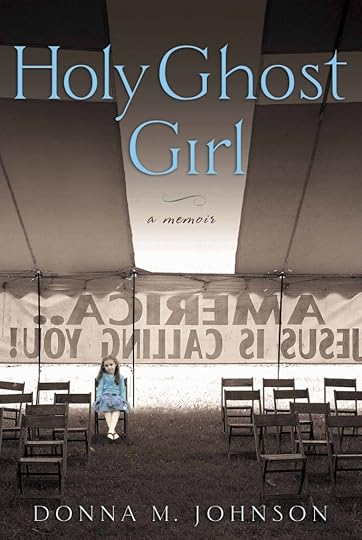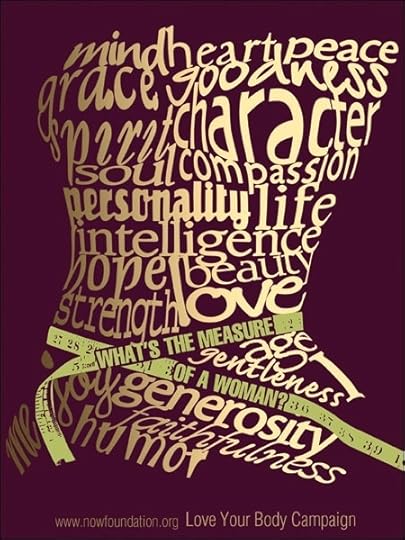Jonalyn Fincher's Blog, page 10
April 9, 2014
Am I Ready for an Opposite Sex Friendship?
For the month of April we are investigating common questions about men and women being friends. Last week, counselor Ryan Neace offered my favorite definition of lust.
This week, I will be sharing some powerful tools to know if you’re ready (or not) to have an opposite sex friend. This question has come along with hundreds others about guy/girl friendships, what makes them dangerous, what are some red flags, what it means to have good boundaries, what is the role of beauty and sexual attraction . . .
I’ve taken these questions and sought out a mentor and friend, Dan Brennan to help give me some perspective. Dan is a trailblazer on cross- sex friendships and has participate, articulated, and championed their power in the body of Christ for the last 12 years. Dan’s book, Sacred Unions, Sacred Passions, on the theology of cross- sex friendship pivoted me into freedom on this topic, inspiring posts and talks like Harry and Sally are Wrong.
Before I share Dan with you, would you take a moment and vote for your favorite question? By voting (anonymously) YOU will choose the question that gets answered this month. Which question is of most interest to you?
Take Our Poll
And without further ado, my short (9 minute) interview with Dan Brennan answering: “How Do You Know if You’re Not Ready for a Cross- Sex Friendship?” Hint: you’ll discover one important ingredient in an emotional affair.
And for those have more questions than these, feel free to add your cross- sex friendship questions in the comments below.
Next week, a guest post on the difference between flirting and playfulness in guy/girl friendships.
April 2, 2014
What is Lust?
For April I will be covering common questions about guy/girl friendships.
But before we can clear the ground to build the house of friendship between men and women we’ve got to cut down some toxic plants. The biggest noxious weed is one we know all too well, it’s the famous “male” vice of lust (but if you’ve been a reader here you know I believe lust is alive and well among women, too).
If we’re afraid of lust or don’t really know what it is, we will have trouble finding enough clear space to build anything between men and women (except the one socially accepted house of marriage).
I’d like to introduce an intrepid new friend, Ryan Thomas Neace, a Licensed Professional Counselor who works with teens, adults, and families in his St. Louis, MO private practice. It was Ryan’s post ”Consecrated Sexual Attraction“at the Huffpost that caught my eye. Please read in its entirety at his blog RyanThomasNeace.com. If you click over you’ll be struck right away by one thing: Ryan is honest about male sexual desire.
I wanted to share a cutting from our conversation where share a definition of lust that is the most clear and helpful I’ve found. Listen or watch below.
If you cannot view go here.
And for those who don’t have time to watch a video, the cliff notes:
Lust is an unbidden desire that compels us to act in a way
that denies
the mutuality and intentionality of relationship
by funneling, conflating, or inordinately focusing the satisfaction of this desire
into sexual fulfillment.
Note on the video, the quote “Hypocrisy is the homage vice pays to virtue” is a loose quote from Francois de La Rochefoucauld
March 28, 2014
The Dark Side of Vulnerability
March 26, 2014
Spring into Spiritual Conversations
This month of tender and hard conversations included Emerald Cities with a Buddhiscopalian, an atheist, a heretical Christian, and this week a conversation with a patriarchalist.
Last week I went toe-to-toe, in a respectful way, with the passionate complementarian, Rev. Jesse Lee Peterson. Jesse asked me why my egalitarian position was so complicated (compared with his own), if I submitted to my husband, and why I wouldn’t talk about some subjects with him (e.g. if I voted for Obama, what were my views on same-sex marriage). I shared the example of Huldah, the importance of the “husband is the head” metaphor and when it ended I felt like I had held onto my sacred ground. Listen here.
Someone once asked me, ”How do you have friendly debate? How do you hold onto what you believe while talking with someone who disagrees? How do you stay calm?” It hasn’t always been so easy. As an passionate extrovert, it’s not something I was born with. I much prefer steam-rolling people, or just ignoring points I don’t like.
It’s taken years to learn to listen, to having my mind changed mid-conversation and admit it. And it’s taken some of the hard soul work you know we like to practice over here at Soulation to get comfortable enough to have these kinds of hard conversations regularly.
I prepare for them, I pray over them, and I practice my own form of aftercare once I hang up. I’ve learned more about myself, the way some words zing me, the way I resist change, the know-it-all way I can come across. In fact, as a friend of mine says, “Nothing has taught me so much about God and myself as my friendships.”
Perhaps you feel the same. Or perhaps you’re quite curious about how to have spiritual conversations more often, maybe you’re curious about how to bring up morality or faith or even truth without becoming the weird one or the judgmental one. If so, I have some news for you.
I’m carving out a place for you to learn more about how Soulation does this “fully human” thing, support us (seriously, nothing would encourage me more than to have you sign up), and do some rewarding soul work in the process. This Spring, I’m proud to present a soul workout e-Course, Soulation’s SoulGym.
SoulGym will run five weeks and include short videos, creative prompts, Sabbath preparation, and an online community that will meet with us via one-on-one mentoring and group webinars.
To find out more or sign up go here.
If you’ve read (or simply heard about) our book Coffee Shop Conversations: Making the Most of Spiritual Small Talk, SoulGym is the class to go deeper with us. If you’re like me, you know that soul work is rewarding enough and hard enough that you don’t want to do it alone.
Hope to see you there!
March 19, 2014
Welcoming Spring
Spring means daylight savings, which in turn means I can take an evening walk in the golden light after dinner.
For this last day of Winter, before we spring into the first day of Spring, I’d like to share a few of my favorite quotes from the prophetic and creation stewarding words of Wendell Berry. If you don’t know Berry, he is first a Kentucky farmer, second an award winning essayist and novelist, as well as the recipient of numerous awards (a fellow of both the Guggenheim Foundation and the Rockefeller Foundation, and a former Stegner Fellow at Stanford University).
Listen to him this Spring of 2014.
“We will discover that God found the world, as He made it, to be good, that He made it for His pleasure, and that He continues to love it and to find it worthy, despite its reduction and corruption by us.”
– from “Christianity and the Survival of Creation” in Sex, Economy, Freedom and Community
“But we have not only the example of nature; we have still, though few and widely scattered, sufficient examples of competent and loving human stewardship of the earth. We have, too our own desire to be healthy in a healthy world. Surely, most of us still have, somewhere within us, the fundamental human wish to die in a world in which we have been glad to live.”
– from “Conservation and Local Economy” in Sex, Economy, Freedom and Community
“The essential and inscrutable privacy of sexual love is the sign both of its mystery and sanctity and of its humorousness. It is mysterious because the couple who are in it are lost in it. It is their profoundest experience of their being of the world and of their being in it and is at the same time an obliviousness to the world . . . (and yet) most people, for example, no longer seem to be aware of the absurdity of sexual vanity . . . Sexual arrogance is not funny.”
– from “Sex, Economy, Freedom and Community” in Sex, Economy, Freedom and Community
“Grandmam . . . now, after her years of bearing and mothering and hard work, she had grown thick and slow, and she remembered her lost suppleness and beauty with affection but without grief. She didn’t grieve over herself.”
– from Hannah Coulter
“I never caught him sneaking a look. He looked at you with a look that was entirely direct, entirely clear. His look said, “Here I am, as I am, like it or not.” There was no apology in his look and no plea, but there was purpose. When he began to look at me with purpose, I felt myself beginning to change. It was not a look a woman would want to look back at unless she was ready to take off her clothes. I was aware of that look a long time before I was ready to look back. I knew that when I did I would be a goner. We both would be. We would be given over to a time that would be ours together, and we could not know what it would be.”
– from Hannah Coulter
I recommend you read Berry’s work. My favorites are The Memory of Old Jack, Hannah Coulter, Jayber Crow and Sex, Economy, Freedom and Community (in that order).
And now let me welcome you to Spring with a tender and open-hearted conversation about being a heretical Christian.
But first, to catch you up, this month I’ve shared three conversations with people who don’t always agree with me, but for whom I have deep respect. Catch up by watching these Emerald Cities from March: Donna Johnson: a Buddhiscopalian on Christian spiritual abuse and Emily Heist Moss: an atheist on gay marriage. And next week, a complementarian radio host who interviews me for his national show and passionately disagrees with my view on women in leadership.
This week, listen to a former editor at The Good Men Project, blogger and Millennial, Deanna Ogle talk with me about being spiritual but not religious. Deanna and I kick off our time together by talking about what she means by calling herself a “heretical Christian.”
Read more of Deanna at “Where the Church Lost Me“. Follow @DeannaOgle.
Stay tuned next week for some fun details on how to hang out with me AND work out your soul at Soulation’s SoulGym. Opening May 1, 2014.
March 12, 2014
Emerald City: Atheist and Christian talk about Gay Marriage
“There’s nothing that can take the place of a real conversation with someone . . . who wants to listen.”
Jonalyn Fincher and Emily Heist Moss
For our second hard and tender conversation this March, I want to share another Emerald City with Emily Heist Moss.
Several months ago, I met Emily, an atheist and open-minded blogger at Role/REBOOT from Chicago. We met over my response to her post (What Kind of Sex Counts as Real Sex) and debated the definition of sex. This time we talk about how we come to different places politically, but with reasons.
We start with tolerance, what it means and then move on to homophobia, then the right of religious people to bring their Scriptures to the table (minute 19:33–which is my favorite part) and if there is a gay agenda (minute 9). Emily shares her understanding (as a progressive) of conservative’s reasons to oppose gay marriage (minute 14), and we discuss the importance of two-parent households (27:49).
Please forgive the popping throughout the video (this was due to my very dangly earrings–a mistake I won’t be making again).
If you cannot view this video please go here.
The article Emily shared with me “Joiners and Quitters” shows how some progressives treat Christians who believe gay marriage is wrong. It’s articles like this, I argue, that make Christians afraid to share their views in public. This conversation is my attempt to argue that secularism actually unfairly asks Christians to leave their religion and morality at home.
The article I offered that boys are unfairly disadvantaged (compared to girls) in single parent homes is here “Boy Trouble“.
At minute 23 I make a rash comment that not many colonialists or founding fathers were Jews that believed in Yeshua (Jesus). I actually believe there may have been Jews who followed Jesus, but I do not know (I cannot believe it would have been easy for them to retain their Jewish identity and follow Jesus). But, would any Messianic Jews be able to help me out on this topic?
Finally, I’d like to thank Ben Dyer for his consulting help and enduring friendship as he gave me some pivotal ideas for this interview.
March 5, 2014
Emerald City with a Buddhiscopalian
I noticed Donna Johnson’s book Holy Ghost Girl, because she grew up so full of faith, surrounded by healers, living as a child of evangelists and healers. Growing up along the sawdust trail, Donna trailed her mother and the larger-than-life apocalyptic tent preacher, Brother David Terrell, that her mother supported (and sometimes slept with). She saw miracles, exorcisms, KKK confrontations, the power of prayer, and the power of seduction at work all from the front row. This was a book about show-biz Christianity, but it was also a book about spiritual abuse.
This line on the dust jacket sold me,
“Holy Ghost Girl bypasses easy judgment to articulate a rich world where the mystery of faith and human frailty share a surprising and humorous coexistence.”
As part of Publisher’s Weekly’s Top Ten memoir list for Fall ’01, Donna brings humanity and even understanding to the hero worship she felt for Terrell, but she doesn’t mince what David did to her, either.
I wanted to meet this woman. I wanted to know what became of her faith after such intense childhood years of spiritual abuse. She spoke with such tenderness about her mother who left her in the hands of abusive strangers. How did Donna cultivate grace and compassion?
Donna graciously responded to my invitation and gave me nearly and hour for an Emerald City interview.
So, to kick off our month of tender and hard conversations, Donna Johnson and I sat down to talk about her faith journey. While she doesn’t explain her title in this recording, she did reveal to me in our private conversation that she likes to think of herself today as a “Buddhiscopalian”. I hope you enjoy her tenderness and compassion as much as I did.
If you cannot view, watch here.
Please feel free to offer your comments and questions. I’ll invite Donna to join us. Best comment (you vote) will receive a free copy of Holy Ghost Girl.
~~~ Next week, stay tuned as Emily Heist Moss and I return for round two of a Christian and Atheist talk about… this time “Church and State” (First round here “Atheist and a Christian Talk about Sex“).
February 26, 2014
If You Love Skinny Boys
It is godlike to love the being of someone.
Your existence is a delight to us.
Gilead, Marilynne Robinson
I have a son. He is just a slip of a boy who I hope will grow up to be skinny, like his dad.
I’ve always loved skinny boys. To me it marks them as having sustained a different kind of teasing, and a different kind of survival.
My whole family comes from skinny boy stock, all elbows and knees and wire. Boy oh boy how those boys could scrap and sprint. My freshman year of track I ran with those boys (this is not a metaphor) in the mile and two-miles races. Girls and boys, thin as rabbits, leaping for the finish line. I learned respect and interest in those boys who could run faster than me. Perhaps it’s the blending of opposites, the slender strength of power and fragility within one body. It brings me to attention, appreciation, deep inquisitiveness.
Who doesn’t want to know about the tenderness held in the body of man who is told from his youth that he is supposed to be rough and tough?
In a world where strength is practically a synonym for masculinity, I want to notice the skinny ones. I want to ask these fellows how they came to peace with their bodies. They know that body image isn’t only a female topic.
The boy, Andy Catlett, explains,
They greeted me (the men strong and tough with labor), made much of me, gave me very astutely my credit rating, and so reminded me how much, how much more than they knew, I wished to grow and fill out and do work worthy of my dinner (Andy Catlett: Early Travels, 2006).
Despite my son’s rather girth-y beginnings at almost 10 pounds, he is stretching into one of those skinny boys. In one week, this little boy will turn four. In this next year, I see the same challenge, to raise a boy into a man who will be known for his tender love rather than his rulership and muscles.
Two years ago, I almost lost my son. After a routine surgery gone sour, I flew with him as they airlifted his unconscious body to Denver. When my son was knocked out by the world’s blows, his future girth or skinniness seemed impossibly irrelevant. I simply wanted him to live, to be healthy again.
And skinny boys are healthy sons of the most high.
To simply know the soul of another, to have the courage to look at them, to see them, to love them, this is the fuel (it’s like the veggies and protein) for our lives. I’ve recently realized I give undeserved reverence to tall men, to stacked men, to powerful men over the short men, the skinny men, the disempowered men. I may love skinny boys, but I think the powerful big men deserve to drive the ship.
And so I write an ode to skinny boys. Not because they are more valuable than big men, but because often they know more about soul matters because they’ve been forced to look within (it is the same with women who don’t fit single digit jeans).
Show me a man of tenderness and love, big or small, skinny or stacked. A man who can hold his tongue and push into the fragility of relationship with courage and vulnerability. Show me a man who can wash feet, not just his son’s or his sexy wife’s but the feet of those who bother him. These are the men I want to re-calibrate to revere.
Recently, my husband came upon an old list I had texted him from the emergency airlift. Simple things that I needed to care for my son in the hospital in Denver.
Power cord for computer
Pink ditty bag
Breast pump: bottom shelf. Purple base. Plug. Hoses with caps. Bottles with parts and containers.
Two pair underwear
One pajama pant
One bra
Pair of socks
Bag of trail mix
Black bag
One or two long sleeve shirts
Deodorant. In square basket above closet
Eye drops
Eye mask
Bible
The stuff of humans is laundry list stuff. It’s mundane and repetitive (I just made lunch, do we really have to eat AGAIN?!). It’s vulnerable and drippy and so high maintenance.
What I see God teaching me is that the mundane human stuff is why we get to live. Eye drops and underwear are part of the ways we take care of ourselves for each other. We bring our husband the power cord. He brings us the eye mask. And any man (the skinny and the buff) and any women (the soft, the hard, the svelte and the stout) can learn to be tender. Any man and any woman can learn to serve well, to gather item in those harrowing moments when children lie unconscious. If you don’t believe me, this weekend check out two videos that have deeply influenced my gender theory. Pioneers like Jean Kilbourne and Jackson Katz explain in these videos how femininity and masculinity have been sold to us (yes, even in Christendom), a false list of things that actually make us less human: Killing Me Softly 4: Advertising’s Image of Women and Tough Guise (your Interlibrary Loan program should have access to these).
Perhaps this is a post, not simply about my son, but about the capacity every human has to delight in the being of another. And once the false views of masculinity or femininity fall away, I believe delight is what we all, deep down, really want.
~~~
Next month, I’ll be sharing a series of hard, tender conversations to build gentleness in those who watch. Recorded for Emerald City, we’ll start with a conversation with Donna Johnson, and her book, Holy Ghost Girl, which covers the tenderness she’s cultivated toward the cult leader who marred her childhood.
February 19, 2014
Letting Barbie In Our House
Within our marriage, it was my husband who first believed men and women could be friends. One of his long-time friends from college, Susan Lawrence, has since become one of my friends, winning me over with her stories (she has the same acting degrees as my husband), her courageous parenting, and the way she laughs without inhibition. Susan had the perfect story to tackle the ambivalence of introducing Barbie to her kids.
Any Barbie lovers or Barbie haters (or Barbie I don’t really carers) will want to keep reading:
~~~
Early in my parenting, I loosely thought, “Our daughter won’t need to play with Barbies, and I don’t think I’ll get her any.” I didn’t make any hard and fast rules or announce any “convictions” about Barbie.
My husband grew up with three brothers and his missionary parents in the jungle of Papua New Guinea. Barbie wasn’t even on his radar.
Then, one Sunday morning, the doorbell rang.
“It’s Mr Stoltfutz!” shouted our three-year-old daughter.
Our orthodox Mennonite neighbor from the farm next door stepped inside. “I’ve got a cow that’s down and need to call t’ vet.”
As we cleared the breakfast table during his phone call, I saw a toy being waved at Mr. Stoltfutz’s face.
“Oh, NO!” I panicked. “My daughter’s waving her Barbie from the garage sale yesterday! And it’s naked!”
How could I explain that I’d just happened to zip into a garage sale and on a whim bought my daughter a Barbie, giving just the instructions, “That Barbie needs to keep her clothes on. I don’t like naked Barbies kicking around a house,” on the drive home. Well.
That night, I began to realize what I’d let in the house
Barbie herself.
What had I done?
When younger and moving in fundamentalist Baptist circles, I’d heard sermons against Barbie.
Aren’t girls damaged by unrealistic body expectations after dressing Barbies? Won’t they suffer from low self-images ever after as a result of a childhood playing with Barbie? Don’t people know how unrealistic the very dimensions of a Barbie are? Wasn’t the only imperfection—and for some reason this was a favorite of traveling evangelists—on a Barbie the raised letters, “Made in China,” on her behind? Weren’t there some prominent female Christian speakers and writers who mentioned on more than one occasion that they had been successfully raised in homes without television, without newspapers, without Barbies?
 You know, I played Barbies growing up. My mom bought Barbies for my sister and me. (Mom drew the line at buying a Ken, not wanting us to undress him; so, being resourceful, we made our Bionic Woman doll the ‘man’ during our playtime. She went shirtless to denote her masculine status. Mom never caught on to that maneuver, and probably a good thing, too.) I named mine Lisa. She was a Barbie with less makeup and sandier hair than most. In fact, to me, she looked pleasantly normal. I enjoyed playing with her.
You know, I played Barbies growing up. My mom bought Barbies for my sister and me. (Mom drew the line at buying a Ken, not wanting us to undress him; so, being resourceful, we made our Bionic Woman doll the ‘man’ during our playtime. She went shirtless to denote her masculine status. Mom never caught on to that maneuver, and probably a good thing, too.) I named mine Lisa. She was a Barbie with less makeup and sandier hair than most. In fact, to me, she looked pleasantly normal. I enjoyed playing with her.
So, was I really anti-Barbie from a deep conviction that God planted in my heart, or was I playing around with some idyllic, unrealistic upbringing in a fit of trying to keep The World out of our household?
Free Barbie
My question hinges on freedom: Do I have the freedom to let our daughters play with Barbie? Galatians focuses on our freedom in Jesus, since the Galatians themselves had taken the sometimes-predictable step backward from grace to law in their Christian walk. Paul writes in Galatians 5:1, “So Christ has truly set us free. Now make sure that you stay free, and don’t get tied up again in slavery to the law.”
I had wanted the right atmosphere for my daughter to grow to love Jesus, but I was trying to lay down a rule, and rules do not bring freedom. “Like the Galatians, we are tempted to turn spiritual formation into formulas, rule keeping, a series of steps, or a to-do list,” seminary professor Howard Baker writes. This return to law contradicts the grace of God.
My thinking was completely backward, like the Galatians’. Paul gently chided them, “My little children…I am again in the pain of childbirth until Christ is formed in you” (Gal. 4:19). The point wasn’t how much my daughter could make a bid for self-improvement and boast about her Barbie-free childhood, but instead how much she was allowed to let God grow freedom in her. Was I letting God make my daughter free? And how was my stance on Barbie helping with that?
I want to help provide that atmosphere of freedom and growth by helping her trust God. Spiritual disciplines like prayer, study, meditation, celebration, worship, will do far more to unleash God’s grace in her life than forbidding a line of toys.

Canada in autum. Photo credit: canadiannaturephotogrpher.com
Barbie and Spiritual Discipline
So we enjoy Barbie in our home, but also . . .
We enjoy going outside and reveling in the beauties of God’s creation in all four glorious and diverse seasons.
We read the Bible together as a family, around the table after supper, where Glenn or I do the reading (which is more like a dramatic retelling than just plain ‘reading’) and the kids do the interacting with the story.
Sometimes, we gather around the piano, where I play a mix of worship songs and kids’ worship songs, and they sing away—freely commenting on a brother’s bad breath or a sister’s getting the words wrong, but they sing—and it’s joy and celebration of God.
We work on memorizing Bible verses together, to sharpen our knowledge and understanding of God, keeping in mind we’re told to hide God’s word in our hearts.
And, at the end of every day, we pray together at their bedsides, thanking God for the joys of their lives (which includes, “Thank you for my new Barbie, God,” because it is a joy to her) and asking for help in the difficulties of life from the one who cares most.
This atmosphere of freedom and growth is the constant (please God!) while toys can come and go.
While we joked that our Mennonite neighbor probably walked back to his farm that day congratulating himself for keeping his family away from The World (no Barbies at his house), I had my thinking turned upside down. Over time, I’ve learned to redirect my children to Jesus himself and celebrate his growing freedom in us, including enjoying and embracing play time with Barbies.
~~~
Susan is a full time mother and garden center/nursery entrepreneur with her husband, Glenn. She lives with her four children in northern Ontario, Canada. You can find more of Susan’s thoughts in her regular writing at the Soulation Blog (previously BreakfastReading). Be sure to see her complementarian series.
February 14, 2014
Guys Like That – Girls Like Me
I’m pleased to be sharing a bonus post this week for Valentine’s Day, written by a friend and fellow writer at Soulation, Brandy Campbell. Brandy and I met at a writer’s retreat in New England, and promptly found out we were both from Colorado. Among the dozens of writers, poets, artists mingling in the dorm halls, laughing as we toted our toothbrush and toothpaste to the common bathroom, enjoying drinks after a long day of creating, none stood out to me like Brandy. She was witty even at 7 am. She supplied me with enough pain killers one night to relieve my migraine and knock me to sleep. And she has become a friend whose courage I have experienced first hand. Let her guide you on Valentine’s as she riffs on her experience after reading Emily Heist Moss‘ post “Hot Guys Don’t Date Big Girls Like Me“.
Editor’s note: please note changes to the section “A Guy Like Him” made as of Feb 14, at 1:23 pm MT
~~~
There are three stories that will help you understand the kind of girl I am.
Story 1.
When I was 29, I went on my first date. It was about as awkward a date as you can imagine. It was a set-up that was prefaced by the statement “we really think you’ll make a good match.” As it turned out, the only requirements for my “good match” were single and breathing. He was in his 40s, completely uninterested in me and visibly bored.
“I had a nice time,” I lied at the end of the date as I pulled on my coat.
He shrugged.
When I walked to my car that night, alone, my phone buzzed in my purse.
“How was it?” my friend texted.
“It was fine,” I responded.
Guys like that are the kind of dates girls like me deserve.
Story 2.
I was in Denver with a group of girlfriends, celebrating a good friend’s birthday. We crowded into the bar area of the restaurant as we waited for our table. It was packed and I was in observation mode—slightly overwhelmed and taking in my surroundings. A young man makes eye contact with me. We smile, and he moves closer, leans in towards me. I can smell his cologne, feel his breath on my cheek.
“Can I get you a drink?” he asks.
“No, I’m not thirsty.”
“Are you sure?”
“Yeah, I’m good.”
He wanders away. My friend, who has observed the interaction, pokes me. “Brandy. He was trying to buy you a drink!”
“I know, I wasn’t thirsty.”
She stares at me.
“Brandy. He was trying to Buy. You. A. Drink.”
I open my eyes wide. “No. He just thought I looked thirsty.”
Guys like that don’t buy girls like me drinks.
Story 3.
A few weeks ago I was at the grocery store, desperately searching for fruit that wasn’t the muted shade of weak watercolors. Out of the corner of my eye I see a couple. He has dark hair that flops across his forehead with a well-trained effortlessness. Lean and muscular arms reach for a head of lettuce.
The woman beside him looks tired. Her hair is pulled into a ponytail and her soft arms brush against a pyramid of apples, sending them bouncing across the floor.
And I think. She must have been thin when they got married. Beautiful before the kids and middle-age. Because surely.
Guys like him don’t marry girls like her.
A Girl Like Me
What is exactly is a girl like me? She’s a girl who has learned to define herself by a number on a scale, a shaded area on a BMI chart, a size on the tag in her jeans. The higher the number, the less worthy she is.
My therapist once asked me why I thought I had never dated much. I stared at her. Wasn’t it obvious?
“You put up walls,” she said. “You stand in the corner and cross your arms across your chest. Why would a man approach a woman who appears to have no interest in him?”
But I’ve seen what they do to girls like me who get confident. Who look past the numbers and focus on beauty and talent and love. Who love their bodies and attract the attention of men “out of their league.” Women who try to shake up the stereotypes. If you forget your labels, there are plenty to remind you of them.
A Guy Like Him
Or did I somehow create that shallow man in my mind? And have I clung to my definition for so long that I have accepted it as fact? Does that vulnerable man that my therapist told me about actually exist? Is it possible that where I see my body in pieces that I can pick apart and criticize, that a man might just see…me? And do I dare believe that one day a man will simply love me—not because of my breasts or in spite of my thighs. That he will love Brandy…not Brandy’s parts. But then, who is a guy like him?
 When I see that man in the grocery store and his wife, what does my judgment say about the things I believe about myself? About the unrealistic labels I have put on love and marriage and beauty. And perhaps most importantly, about my lack of faith in men.
When I see that man in the grocery store and his wife, what does my judgment say about the things I believe about myself? About the unrealistic labels I have put on love and marriage and beauty. And perhaps most importantly, about my lack of faith in men.
I’m afraid that this blog post has far more questions than answers. Because the reality is, I’m fresh on this journey. I still have my walls. I still look in the mirror some mornings and tell myself I don’t deserve good things—God’s gifts—because I am not pretty enough or thin enough. There are still far too many days in which I don’t think I will ever be loved because I am unworthy of love—but I’m finally seeing that I am unworthy of love by a man I have created in my mind. A shallow man who hates my body as much as I do.
I’m understanding that that man likely doesn’t exist. Or rather—sure, men exist who would not like my body. But those aren’t the men I want. I’m beginning to hope that there are men who love the strength of a woman’s body simply because it is the body of the woman he loves. That there are men who want to share a life with a woman with hopes and talents and hips and softness. And hoping for that feels like a good place to start.
I want there to be a fourth story. One in which there is no girl like me or guy like him. There is just him and her. He likes her smile, her laugh, her kindness. She likes his gentleness, his eyes, his silly jokes. There is no “in spite of” in this story. It is not a fairytale, though. There is drama and tears. But in the end, the villain is not in the mirror. The enemy has already been defeated.
Because the greatest of these, is love.
~~~
Brandy Campbell is a full-time writer at an international organization that works with more than 1.2 million children in poverty. When she isn’t writing she spends time baking and traveling. To keep up on her writing and food pics @bncampbell
Jonalyn Fincher's Blog
- Jonalyn Fincher's profile
- 9 followers




